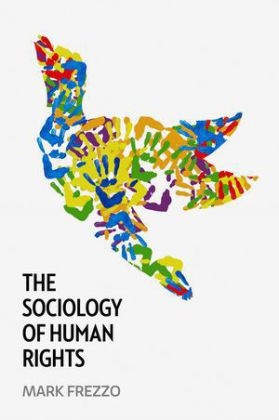Read more
Informationen zum Autor Mark Frezzo is Associate Professor of Sociology at the University of Mississippi. He is currently Chair of the Human Rights Section of the American Sociological Association and Vice President of the scholarly NGO Sociologists Without Borders. Klappentext Long the arena of philosophers, legal scholars, and political scientists, the interdisciplinary study of human rights has recently seen an influx of sociologists. Why is this so, and how do sociologists contribute to our understanding of human rights in the contemporary world?In this landmark new text, Mark Frezzo explores the sociological perspective on human rights, which he shows to be uniquely placed to illuminate the economic, political, social, and cultural conditions under which human rights norms and laws are devised, interpreted, implemented, and enforced. Sociologists treat human rights not as immutable attributes but as highly contested claims that vary across historical time and geographic space, and investigate how human rights can serve either to empower or to constrain social actors, from large societies to small communities and identity groups. Frezzo guides readers through the scholarly, pedagogical, and practical applications of a sociological view of major debates such as foundationalism vs. social constructionism, universalism vs. particularism, globalism vs. localism, and collective vs. individual rights.This cutting-edge text will appeal to students of sociology, political science, law, development, and social movements, and all interested in the nature, scope, and applicability of human rights in the twenty-first century. Zusammenfassung Long the arena of philosophers, legal scholars, and political scientists, the interdisciplinary study of human rights has recently seen an influx of sociologists. Inhaltsverzeichnis Background to the Book Introduction: Thinking Sociologically about Human Rights Chapter 1: Defining the Sociology of Human Rights Chapter 2: Classifying Human Rights Chapter 3: Civil and Political Rights Chapter 4: Economic and Social Rights Chapter 5: Rights to Culture, the Environment, and Sustainable Development Chapter 6: Rights Bundles Conclusion: An Agenda for the Sociology of Human Rights Suggestions for Further Reading Internet Resources for Consultation Terminology Bibliography...
List of contents
Background to the Book
Introduction: Thinking Sociologically about Human Rights
Chapter 1: Defining the Sociology of Human Rights
Chapter 2: Classifying Human Rights
Chapter 3: Civil and Political Rights
Chapter 4: Economic and Social Rights
Chapter 5: Rights to Culture, the Environment, and Sustainable Development
Chapter 6: Rights Bundles
Conclusion: An Agenda for the Sociology of Human Rights
Suggestions for Further Reading
Internet Resources for Consultation
Terminology
Bibliography
Report
Mark Frezzo invites sociologists to join others (political scientists, economists, anthropologists) to engage human rights both empirically and theoretically. (We should have been there all along since human rights are embedded in societies, communities, social relations.) His invitation is especially attractive, because he challenges us to take on such cutting-edge issues as global inequalities, environmental sustainability, and the social implications of climate change.
Judith Blau, University of North Carolina
Through careful theoretical and pedagogic reflections Mark Frezzo introduces us to the concepts of rights conditions, rights claims, rights effects, and rights bundles as a way to to think sociologically about rights in the era of globalization. And by expanding the epistemic community of human rights invites us all to participate in defining and solving the human rights puzzles of our time.
Manisha Desai, University of Connecticut
Mark Frezzo adds a sociological voice to the human rights conversation, which has so far been dominated by the disciplines of law and international relations. If readers wish to study rights claims of social and global movements, sociological tools remain indispensable to assess their progress. The Sociology of Human Rights defends a nuanced form of universalism in an age of skepticism and upholds people's capacity for change. Frezzo's refreshing engagement is a significant contribution to the field of human rights.
Micheline Ishay, University of Denver

